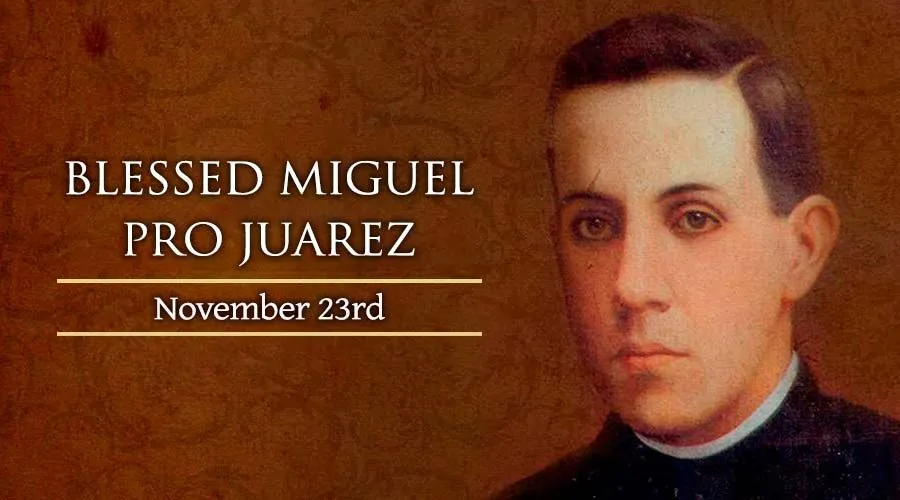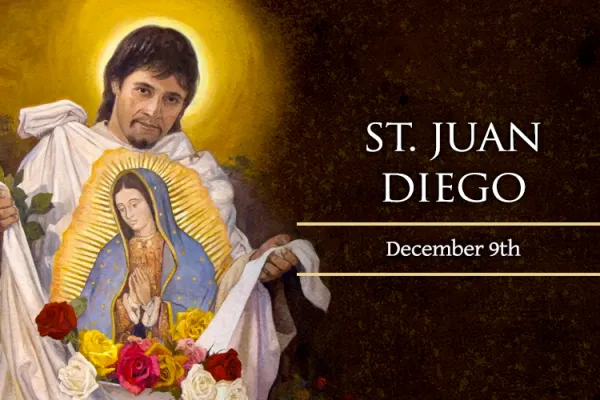Sub-Saharan Africa, 23 November, 2024 / 11:15 am (ACI Africa).
Born in Guadalupe on January 13, 1891, Miguel Pro Juarez was one of 11 children. Miguel was, from an early age, intensely spiritual and equally intense in his mischievousness, frequently exasperating his family with his humor and practical jokes. As a child he had a daring precociousness that sometimes went too far, tossing him into near death accidents and illnesses. Miguel was particularly close to his older sister, and after she entered a cloistered convent he began to discern his own vocation, leading him to enter the Jesuit novitiate in El Llano, Michoacan at the age of 20. He studied in Mexico until 1914 when a tidal wave of governmental anti-Catholicism crashed down upon Mexico, forcing the order to flee to Los Gates, California. He then taught in Nicaragua from 1919 until 1922.
By the time Fr. Pro was ordained a priest in Enghien, Belgium in 1925, the political situation in Mexico had deteriorated: all Catholic churches were closed, bishops, priests, and religious were rounded up for deportation or imprisonment, and those caught trying to elude capture were shot. The celebration of the sacraments was punishable by imprisonment or death, and the Church was driven underground. Fr. Pro received permission from his superiors to return to Mexico incognito and to carry on his ministry undercover. Fr. Pro slipped into Mexico City and immediately began celebrating Mass and distributing the sacraments, often under imminent threat of discovery by a police force charged with the task of ferreting out hidden pockets of Catholicism. He became known throughout the city as the undercover priest who would show up in the middle of the night dressed as a beggar or a street sweeper to baptize infants, hear confessions, distribute Communion, or perform marriages. Several times, disguised as a policeman, he slipped unnoticed into the police headquarters itself to bring the sacraments to Catholic prisoners before their execution. Using clandestine meeting places, a wardrobe of disguises and coded messages to the underground Catholics, Fr. Pro carried on his priestly work for the Mexican faithful under his care.
A failed attempt in November 1927 to assassinate the President of Mexico which only wounded him provided the state with a pretext for arresting Fr. Pro with his brothers Humberto and Roberto. They were put in jail and held without trial for ten days, accused of the attempted assassination. On July 17, 1928, President Calles ordered Fr. Pro to be executed, ostensibly for his role in the assassination plot, but in reality for his defiance of the laws banning Catholicism. As Fr. Pro walked from his cell to the prison courtyard, he blessed the firing squad and then knelt and prayed silently for a few moments. Refusing a blindfold, he stood, faced the firing squad, and with a crucifix in one hand and a rosary in the other, he held his arms outstretched in the form of a cross and in a loud, clear voice cried out, "May God have mercy on you! May God bless you! Lord, Thou knowest that I am innocent! With all my heart I forgive my enemies!" As the soldiers lifted their rifles, he exclaimed in a loud voice, "Viva Cristo Rey!" - "Long live Christ the King!" A volley rang out and Fr. Pro fell to the ground riddled with bullets. A solider stepped up and discharged his rifle at point blank range into the priest’s temple. 30,000 people attended his funeral procession. Fr. Miguel Pro was beatified on September 25, 1988 by Pope John Paul II.
Fr. Pro used his natural gifts of intense determination and courage, seen throughout all parts of his life, to further the kingdom of God. Modern Catholics may follow Fr. Pro by taking courage and using their natural talents and gifts as God asks of them.






